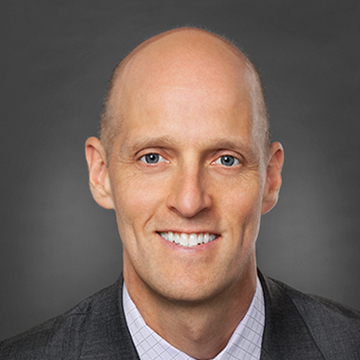
Got Financial Game? Financial Planning Strategies for Professional Athletes

By Seth Streeter, MS, CFP®
Founder and CEO
Fame, big-money contracts, lucrative endorsements and lavish lifestyles are often associated with professional athletes. Unfortunately, so are many stories of “rags to riches to rags” due to poor financial choices made by these superior athletes.
Sports Illustrated published a study finding that 78% of NFL players filed for bankruptcy or were in financial distress within 2 years of retirement from football. The NBA shared similar shocking results with 60% reported to be broke within 5 years of retirement.
Whether it was NBA’s Antoine Walker losing $108 million in earnings, MLB’s Curt Schilling losing $90 million in earnings, NFL’s Terrell Owens losing $80 million in earnings or boxing legends Evander Holyfield and Mike Tyson squandering $250 million and $300 million in earnings, respectively, the storylines were the same. These athletes made ill-informed choices, trusted the wrong people and didn’t have structured plans to guide them. And now, instead of enjoying a comfortable retirement, they are struggling to keep their heads above water.
All of this is avoidable for those who follow prudent guidance and practice common sense.
Friends or Foes?
You may be the first person in your community circle to come into a sizeable financial payday, so as a professional athlete you potentially can be seen as the primary breadwinner and funder for a group of friends and family.
While the desire to help those you care about is noble, it can often backfire when it involves spending your resources on non-income-producing assets like homes, cars and jewelry. Even worse, you could get stuck in asset-losing investments such as failed business ventures.
There is a tremendous amount of social pressure placed on a young athlete who quickly comes into money. Without a team and structure to support the athlete in making sound decisions, the fear of disappointing loved ones can lead to poor long-term financial choices that can last a lifetime.
This is not to say that you can’t buy your mom a new place to live; it means that any purchases should all be part of a larger strategy that prioritizes your own sustainable financial security over the long term.
Financial planning as an athlete is challenging. Careers and high earning capacity tend to be brief. The average career for a NFL player is 3½ years, and the average career for an NBA player is 4½ years. On top of that, there are lawsuit risks, partial-year payment schedules and extremely variable endorsement deals that are hard to plan around.
All Advisors Are Not Equal
Often athletes are led to believe that their agents have their best interests at heart, not just with negotiating their contracts but also with managing their finances. This is rarely the case. Just because some agents have a license to sell financial products does not make them dedicated experts in the area or mean they may not have conflicts of interest. Agents and managers often want to gain control of an athlete’s finances to further lock in the relationship, but it’s actually in an athlete’s best interests to keep the role of managing their finances separate.
Successfully building wealth requires more than buying financial products. A fiduciary relationship with an advisor is never transactional. Meaning, whomever is advising you should not be making money by selling you a product or moving you in and out from one investment to another. It is important you establish an advisory relationship based on an agreed-upon fee, either on the assets that are being managed (such as a flat percentage fee of 1% or less on the total assets) or a fixed-dollar fee based on the services being delivered. This would be the sole form of compensation your advisor would receive versus having him or her make a piece of every transaction. This affords true transparency and aligns your interests with theirs.
Financial Planning is Essential
Another important aspect to your advisor selection is their ability to do ongoing financial planning. Helping you run forward-looking scenarios based on your earnings, years under contract, spending, purchase choices (like homes and cars), tax bracket and family support needs will help you make educated decisions regarding your future. Also, a carefully created financial plan based on your own goals and priorities will be the best foundation from which to make investment choices. Without a plan as a guiding roadmap, you may be selecting investments that appear favorable in the short-term but that end up moving you further from, rather than closer to, your most important goals.
Your Financial Quarterback
Your wealth advisor should also play the role of quarterback, not with a ball, but with your other advisors, such as your tax accountant, estate and business attorney, insurance agent, banker and bookkeeper. Making sure this team of professional advisors is working together efficiently is critical to your long-term success and independence.
Don’t Forget Uncle Sam
It’s not uncommon for professional athletes to forget to pay attention to their biggest bills: their tax payments to the IRS. With high earnings comes high taxes; income tax planning is a critical component to your long-term financial security. Your wealth advisor can ensure that your investments are managed in a tax-efficient manner and that you are maximizing all tax-advantaged retirement plans offered through your professional association. Note that each association offers different retirement plan structures. For instance, the NBA, NFL and MLS offer 401(k) plans that are primarily based on athlete contributions, while the PGA and NHL offer employer-funding pension plans. Understanding how you can max out your benefits from these programs will both help your tax picture and support your ability to retire comfortably.
Don’t Keep Your Eggs in One Basket
The key to winning the long-term financial game is to make sure that your investments are spread out and not concentrated in one area. You will want a portfolio that includes stocks, bonds and real estate from around the world in addition to alternative investments that have the ability to make money when everything else may be down. You want to make sure your wealth manager rebalances your portfolio, meaning that they periodically sell what has gone up and buy more of what has gone down. This keeps your risk parameters in check. You also need to keep an eye on investment expenses and avoid any investments with a commission; this will keep more of your returns in your pocket and out of your broker’s bank account.
***
As a professional athlete, you have won the lottery in many ways. You are blessed with an incredible physique and athletic skills, and you have incredible determination to train like you do. You deserve the financial rewards that are coming your way! This money you will earn is a privilege that is not to be wasted. By aligning with a fiduciary wealth advisor, you will have an advocate to help you achieve long-term financial security.
Suggestions to Consider
- Carefully select your advisory team based on their fiduciary platform, experience and your sense of trust with them. Check for any complaints against them with the regulatory authorities and request references.
- Work with your advisor to map out your cash flows both in the near-term (during your high earning years) and long-term to help you develop a reasonable path that supports your lifestyle goals (living for today) as well as your savings goals for the future.
- Set up a system for accountability so you’ll stick to the plan you have created. For instance, each month, have a portion of your paycheck go into four accounts, each with a distinct purpose: spending, taxes, saving for near term (a house, for example), and saving for long term (retirement).
- Become aware of your credit score and try to improve it so you can get favorable terms when you borrow money (such as for your home mortgage).
- Rather than give $100k in cash to a loved one, you can instead give $400/month, for example, which would make it sustainable and prevent them from blowing the money.
- Wait a few years before buying your dream car. First build up your cash reserves and a bit of savings to support you down the road. You won’t regret it!
- Help family members by having them open a Roth IRA account that you will fund for them ($5,500 each, assuming they earned this amount of income for the year). This money will grow tax-free to help with their future needs.
- Make sure you have a valid will and durable powers of attorney (and possibly a trust) to ensure your wishes will be carried out for you and your loved ones.
- Just as you invest in your body, health and playing skills, invest in your financial education so you can feel empowered when it comes to money.
Seth Streeter is the CEO and founder of Mission Wealth, and has over 25 years experience in the financial industry. He has his Masters of Science in Financial Planning and his Certified Financial Planner™ designation, and he was ranked by Worth Magazine as one of the top advisors in the country. Mission Wealth is a Registered Investment Adviser.
Inspired Living™
Are you living your life in a way that brings you joy and meaning?
Join the Inspired Living™ movement to elevate your past, present and future. Let us introduce you to prominent thought-leaders, life coaches, and influencers who can work together with you to develop your customized life plan. We will give you curated resources, actionable advice and targeted strategies during your journey of self-discovery. Then we will align your multi-dimensional and multi-faceted life with your ultimate vision so that you can become the BestU™ in your life journey. Learn More
957489 7/17


